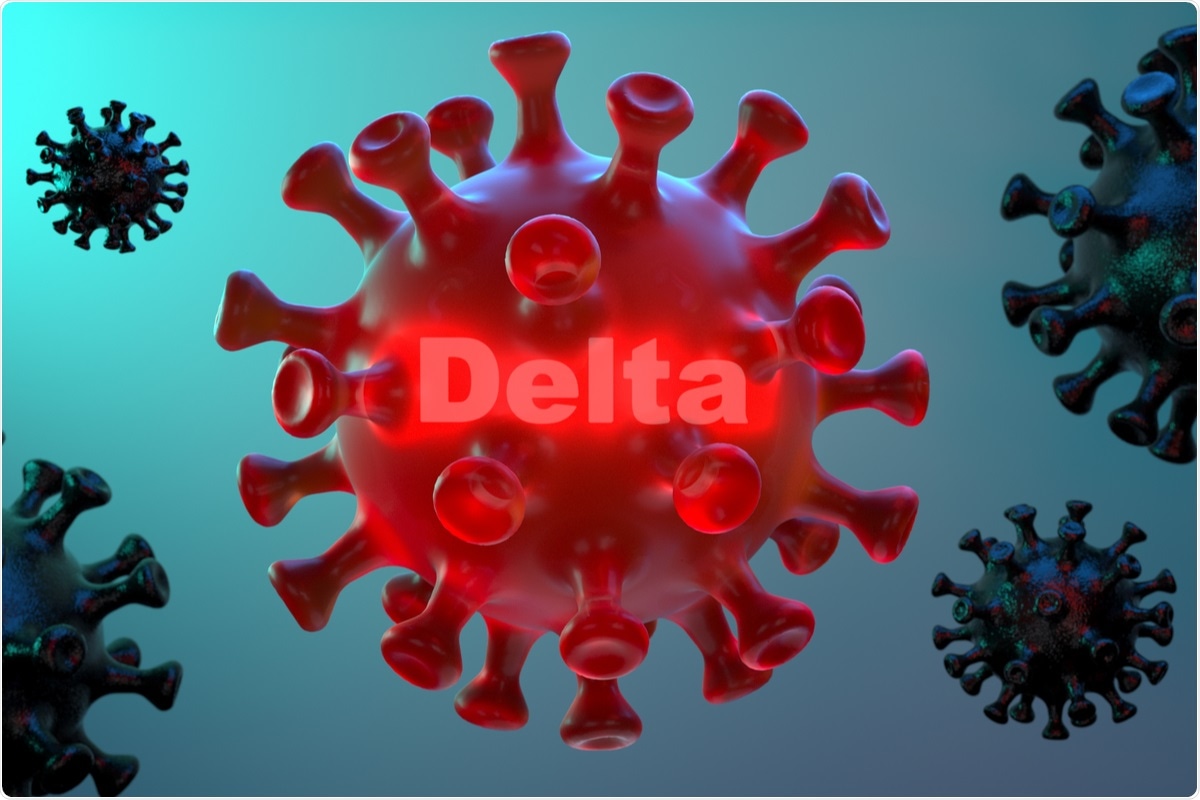The severe acute respiratory syndrome coronavirus 2 (SARS-CoV-2) delta variant of concern (B.1.617.2) was first noted in India in October 2020 and has since become one of the most widely spread and dominant strains globally. Reports have indicated that, like other variants of concern, the delta variant is more highly transmissible and better evades vaccine-induced immunity than wild-type SARS-CoV-2.
 Study: High diversity in Delta variant across countries revealed via genome-wide analysis of SARS-CoV-2 beyond the Spike protein. Image Credit: Dimitris Barletis/ Shutterstock
Study: High diversity in Delta variant across countries revealed via genome-wide analysis of SARS-CoV-2 beyond the Spike protein. Image Credit: Dimitris Barletis/ Shutterstock

 This news article was a review of a preliminary scientific report that had not undergone peer-review at the time of publication. Since its initial publication, the scientific report has now been peer reviewed and accepted for publication in a Scientific Journal. Links to the preliminary and peer-reviewed reports are available in the Sources section at the bottom of this article. View Sources
This news article was a review of a preliminary scientific report that had not undergone peer-review at the time of publication. Since its initial publication, the scientific report has now been peer reviewed and accepted for publication in a Scientific Journal. Links to the preliminary and peer-reviewed reports are available in the Sources section at the bottom of this article. View Sources
Mutations characteristic of the SARS-CoV-2 delta variant spike protein that result in greater virulence have been well described, though mutations to the envelope, membrane, nucleocapsid, 16 non-structural proteins (NSP), and six accessory proteins (NS) of SARS-CoV-2 have been less well documented. In a paper recently uploaded to the preprint server bioRxiv*, nearly 2 million SARS-CoV-2 genomes from around the world were analyzed, finding great diversity within the delta variant that exceeds that observed in the more widely spread alpha variant.
A preprint version of the study is available on the bioRxiv* server, while the article undergoes peer review.
Delta-specific mutations
The research group obtained genomic sequences from the "Global initiative on sharing all influenza data" (GISAID) database sourced from 176 counties and focussed on 8,157 unique mutations spanning 24 of the 26 SARS-CoV-2 proteins that were present in at least 100 of the collected sequences. Of the nearly 2 million genomes gathered, around 200,000 belonged to the delta variant, and it was found that there was an extremely high prevalence of the T19R, L452R, T478K, and P681R mutations to the spike protein, present in 99.86% of delta variant genomes and only 0.04% of other strains. These mutations have typically been used to identify the delta variant and contribute greatly to the enhanced transmissibility widely observed.
Despite these highly prevalent mutations of the spike protein, the group found that only around 6.3% of mutations spike protein-specific, with the remainder distributed across the proteome of SARS-CoV-2. Seven other highly prevalent mutations were noted amongst the delta variant, to the membrane: I82T (99.9%); nucleocapsid: R203M (99.9%) and D377Y (99.6%); NSP12: P323L (99.9%); NS3: S26L (99.9%); and NS7a: V82A (99.4%) and T120I (99.7%). As with the characteristic spike protein mutations, almost all of these mutations were highly exclusive to the delta variant, with only mutation P323L to NSP12 being commonly shared by other strains.
Country-specific mutations
The group generated mutational prevalence vectors to understand better the mutations adopted by the delta variant in each country, tracking the development and spread of prevalent mutations over time in each location. Several mutations contributing to country-specific differences in the delta variant were noted, with the deltaUSA and deltaIndia strains in particular chosen for more detailed analysis. Both strains were found to bear 16 common mutations spanning the proteins of SARS-CoV-2, while deltaUSA possessed 13 additional country-specific mutations, and deltaIndia had three. The implication of these mutations has yet to be determined, though some may be inferred by the normal function of the protein in question. For example, the deltaUSA strain bears a mutation to NSP14 that may inhibit host translational machinery.
Conclusion
The more widely spread alpha variant emerged before vaccine programs had been rolled out, while the delta variant emerged once vaccination had begun. Given the sizable disparity in vaccine availability worldwide, the group states that it may be possible to estimate vaccine efficacy against the delta variant by comparison. More importantly, the emergence of mutations that may have been caused by vaccine distribution can be identified. Other factors such as population density, the implementation of non-pharmaceutical interventions, demographic differences, and many more may also contribute to the divergence of SARS-CoV-2 variants of concern. The group emphasizes the importance of ongoing genome surveillance to develop comprehensive and location-specific therapeutic measures in the future.

 This news article was a review of a preliminary scientific report that had not undergone peer-review at the time of publication. Since its initial publication, the scientific report has now been peer reviewed and accepted for publication in a Scientific Journal. Links to the preliminary and peer-reviewed reports are available in the Sources section at the bottom of this article. View Sources
This news article was a review of a preliminary scientific report that had not undergone peer-review at the time of publication. Since its initial publication, the scientific report has now been peer reviewed and accepted for publication in a Scientific Journal. Links to the preliminary and peer-reviewed reports are available in the Sources section at the bottom of this article. View Sources